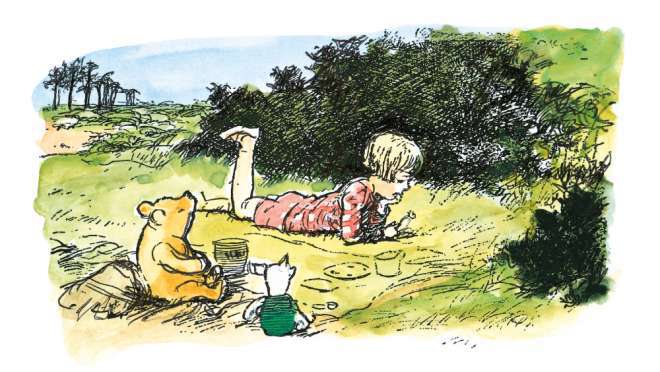“English A was ‘a disaster and French was like medieval torture. To sit down with a blank piece of paper and write was the most traumatic thing that had ever faced me in life. I had ideas in my head, but I could not get the stuff down. It was a crushing time.” – Charles Schwab “It will be particularly helpful if they give themselves practice in precis writing, paraphrasing, and note-taking. If one has to write a precis one is forced not only to think out carefully what are the key ideas in a particular passage but also to express them concisely, accurately, and clearly. Paraphrasing makes similar demands and also forces one to consider the style of the original and to be critical […]
PACIFIC STUDIO VISIT: Interview with Michael Graham about his ‘Dream Job’ Making Museum Exhibits
This past summer, our high school volunteer Krista, my son, and I had a wonderful opportunity to visit Michael Graham, High End Fabrication Program Manager for Pacific Studio in Seattle. Michael has what many would call a dream job - making exhibits for museums all...
How To Become Invincible – Sort Of
Well, maybe not invincible, but you know what we mean. There's a new idea circulating among business leaders and entrepreneurs. It's not mindset or grit, but of course those are important. It's rejection therapy. Some people think part of the reason for higher than...
The Beauty of Guessing
I've been away from the blog a bit because we're finishing articles for our Premium magazine this month and I've been buried in articles about visual spatial learning and preferred learning strategies of boys. Now I know that it's pretty common for the practice of...
New Research: Brain Scans Predict Cognitive Performance [Premium]
“This suggests that individual differences in many cognitive tasks are a stable trait marker.” There’s a new Oxford research study circulating through scientific communities and around the world. From Science (Task-free MRI predicts individual differences in brain activity during task performance), Tavor and collegues applied machine-learning principles to test subjects in a “resting state” to see how they could predict their performances on various cognitive tasks. What was the result? They could predict subject’s responses in 46 out of 47 tasks (and maybe there’s a reason why the 47th one didn’t work…it involved more subcortical activity). Tasks included responses to mental math, sentence and story processing, but also higher order problem solving, social perception, and working memory. The data have a lot of ramifications in […]
Discoverer of the Titanic – Dyslexic Ocean Explorer Robert Ballard [Premium]
“When I was a child, I wrote a letter to an oceanographic institution in California called Scripps (Scripps Institution of Oceanography UC San Diego). It was a Dear Santa Claus letter. “Dear Scripps, I want to be an oceanographer.” I’m sure I misspelled it, because I’m dyslexic. They gave me a scholarship.” – Robert Ballard When I was seventeen, 56 years ago, I went on my first expedition. We got caught in a storm, hit by a rogue wave, and I thought that was so cool. I was too young to be afraid. I just fell in love with adventure with a purpose, where you go out there and overcome the obstacles that you’re always faced with, and then you find this secret, whether it’s a shipwreck like the Titanic, or […]
Dyslexia in the General Classroom – YOU DECIDE : 2nd Grader and Reading [Premium]
YOU are a 2nd-grade teacher in a busy public school classroom. You just learned that Teddy, a student in your class has been tested and found to be dyslexic. Teddy already gets pull-out instruction with multisensory learning to help him read. What can you do to help Teddy make more progress in reading? ************ 1. Alliteration, Rhyming, and Singing – All students can benefit by alliteration and rhyming. New readers will find the books easier to read and reinforcing in terms of the patterns of sounds and printed word families, but good readers can also use alliteration and rhyming as a prompt for poetry and humorous writing. Here is a nice graphic organizer for alliteration: (click here for more). This teacher created alliteration spinners to […]
High School Students View Their Dyslexia as an Advantage
Things are changing. From ABC: "Fortunately for Christa Hills, her dyslexia diagnosis came when she was in primary school. She was able to access appropriate help from a young age. Now studying for her Year 12 exams, she regards dyslexia as a gift. 'It's really great....
The Wisdom of Pooh and Dyslexia
“You are braver than you believe, and stronger than you seem, and smarter than you think.” – A.A. Milne Winnie the Pooh’s advice is smarter than we may think when it comes to encouraging young readers. What’s better than reading intervention and working memory training? Reading intervention and working memory + education about intelligence. If students believe they are not intelligent or bad at school, that negative mindset is likely to sabotage even well-planned educational programs. Students who believe that they become more intelligent step-by-step by persistence and hard work, are significantly higher achieving in reading and working memory, but also math and science. Now researchers are discovering that some studies that didn’t discover significant improvements in working memory training may have been due to this […]





![New Research: Brain Scans Predict Cognitive Performance [Premium]](https://www.dyslexicadvantage.org/wp-content/uploads/2016/05/Screen-Shot-2016-05-12-at-12.40.17-PM.jpg)
![Discoverer of the Titanic – Dyslexic Ocean Explorer Robert Ballard [Premium]](https://www.dyslexicadvantage.org/wp-content/uploads/2016/05/Screen-Shot-2019-09-17-at-9.10.00-AM.jpg)
![Dyslexia in the General Classroom – YOU DECIDE : 2nd Grader and Reading [Premium]](https://www.dyslexicadvantage.org/wp-content/uploads/2016/05/2nd-grade-our-shutterstock.jpg)















